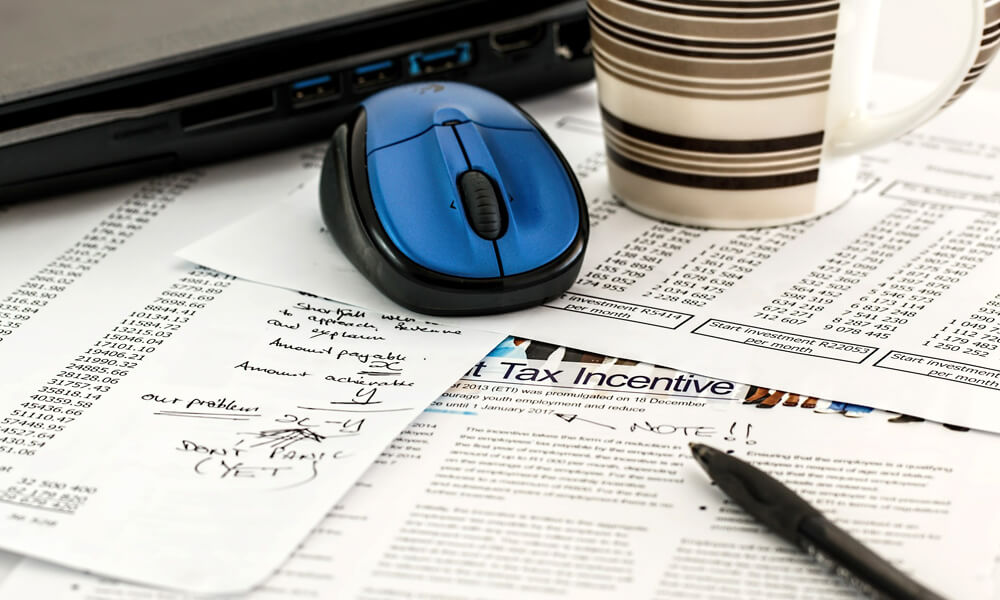Are you looking to start your own business or already have? Well, with taxes due next week, I thought it’d be fitting to cover the top tax benefits of owning a business.
It’s not always how much money you make, but how much you keep that’s important. Employee income tax is one of the most heavily taxed forms of income and the more you make, the more you’re taxed. However, if you operate your own business, you may benefit from a number of tax breaks that’ll keep money in your pocket. Now, let’s save some money!
Business Startup Expenses
Starting a new business can not only be nerve wracking, but expensive as well! Thankfully, Uncle Sam encourages new business and provides a number of tax breaks that’ll help get you on your feet.
- Investigating the creation or acquisition of a business is one expense that may be easy to overlook. Costs such as market analysis, product analysis, visiting potential business locations, and any other costs associated with creating or investigating a new business can be written off.
- Once a new business venture has been decided, it’s time to prepare for opening. Costs associated with this may include advertising, attorneys, accountants, consultant fees, employee wages, trainings, and more. Keep in mind that large equipment expenses may need to be depreciated over time.
- Many times you will incur organizational costs as well. This may include incorporating legal fees, state organization fees, accountant fees, and anything else necessary to structure your business properly.
Depending on the type of business you start, fees can start to add up. Be sure to stay organized and keep track of all your receipts so you can write off as much as possible.
Operating Expenses
Operating expenses will vary widely depending on the type of business. For example, a company with physical products may incur more expense than those purely digital. Operating expenses may include any number of the following:
- Utilities
- Raw materials
- Website hosting fees
- Rent/mortgage
- Admin costs
- Storage
- Book keeping
- Legal fees
- Labor costs
- Shipping
- Seminars/trade shows
- Bank service charges
- Business related books/magazines
- Food and beverages
- and more!
Clearly, there are quite a number of expenses that may be written off as an operating business expense. Simply, if the activity is directly related to your business, you can most likely write it off as a business expense. Quick tip: by filing as an “s-corp” and paying yourself a yearly wage, you can write off your income as a business expense. How cool is that!
Auto Expenses
If you find yourself using a car or truck to conduct business, this can be deducted. However, if the vehicle is used for both business and personal use, you need to keep track and differentiate expenses between the two. This can become tricky, but may be worth the effort depending on the necessary driving. If used for business, such write-offs may include:
- Lease payments
- Tires
- Maintenance
- Repairs
- Parking
- Tolls
- Insurance
- Licensing, Registration, and Taxes
- Fuel
Also note there are two options when deducting your vehicle expenses. Actual Expense requires that you keep track of all business related expenses and deduct an amount for depreciation each year. Standard Mileage Rate requires that you deduct a certain amount for each mile driven, plus all tolls and parking fees. If you’d like more information about this, I recommend reaching out to your local tax professional.
Travel Expenses
When traveling for business purposes, you may write off a number of expenses. These may include any number of the following:
- Airfare
- Vehicle expenses
- Taxi/Ride Share
- Lodging
- Meals
- Laundry
- Dry cleaning
- Phone calls/internet/faxing
- Tips
When traveling for business it may be tempting to combine business with pleasure. Now, this is okay as long as business is the trips main purpose. However, you can only deduct your own expenses and not those that include your family or friends. Do keep in mind that as of 2018, entertainment expenses are now no longer deductible.
Insurance
When running a business, it’s important to consider purchasing piece of mind through insurance. Insurance premiums that qualify as a business expense include any number of the following:
- Medical/dental/vision insurance for employees
- Fire/theft/natural disaster insurance for business properties
- Liability insurance
- Workers compensation
- Business interruption insurance
- Life insurance for company directors
- Credit insurance
Equipment
Recently, in 2018, the section 179 deduction allows for a 100% deduction on all purchases except real estate. This encourages businesses to invest in themselves and purchase computers, software, office equipment, and anything else deemed necessary. That said, there is a limit of $2.5 million per year (at this moment), so do keep that in mind if you’re running a larger business.
If purchasing real estate or other large equipment, the cost may be depreciated over time depending on the circumstances.
Interest
If credit is necessary when making business purchases, the charges and interest accrued is fully tax deductible. Keep in mind that depending on business profit, you may only qualify for a partial deduction. For example, if business profit is over $25 million, you can only deduct 30% of your interest expense.
Taxes
Taxes incurred when operating your business are generally deductible. How and when they are deducted varies depending on the type of tax.
- Sales tax on items purchased for day-to-day operations are included with the base price and can be written off entirely. However, large asset purchases, such as vehicles, may need to be deducted separately.
- State income tax can be deducted as an itemized deduction, but federal taxes can never be deducted.
- Real estate tax on business property is fully deductible. However, taxes on improvement, such as renovation costs, are deducted over a number of years.
Advertising/Marketing Expenses
Any costs associated with advertising your business is deductible as a current expense. Web ads, 3rd party marketing services, business cards, mailers, billboards, video advertisements, radio, and more! Sponsorships also fall under this category as long as there is a clear connection. For example, sponsoring a local little league team with your business name on the t-shirts.
Education Expense
To keep your business relevant with the times, it’s important to stay on top of industry trends. Technology continues to grow at a rapid rate and continued education is key to further success. Thankfully, any expense that helps your company maintain or improve their skill set may be written off. This could be seminars, classes, online courses, books, or anything else that potentially improves business success.
Using Tax to Your Advantage
As you can see, there are a number of ways to lower your tax burden when running a business. Do your best to keep track of all your expenses and save your receipts! A receipt here and there may not seem like much, but over time will add up to a substantial amount of money. Now get out there, start building a profitable business and take advantage of Uncle Sam’s tax breaks!
Are you using taxes to your advantage? Leave a comment below!
Note* This article was meant to be a quick overview of some of the benefits of owning a business. That said, I am not a tax professional and tax law is always changing. To learn more about how you can save, I highly recommend reaching out to your local tax professional to see what works best in your specific situation.
*Some of the links above are affiliate links, which means that if you choose to make a purchase, I will earn a commission. This commission comes at no additional cost to you. I recommend them because they are helpful and useful, not because of the small commissions I make if you decide to buy something.






